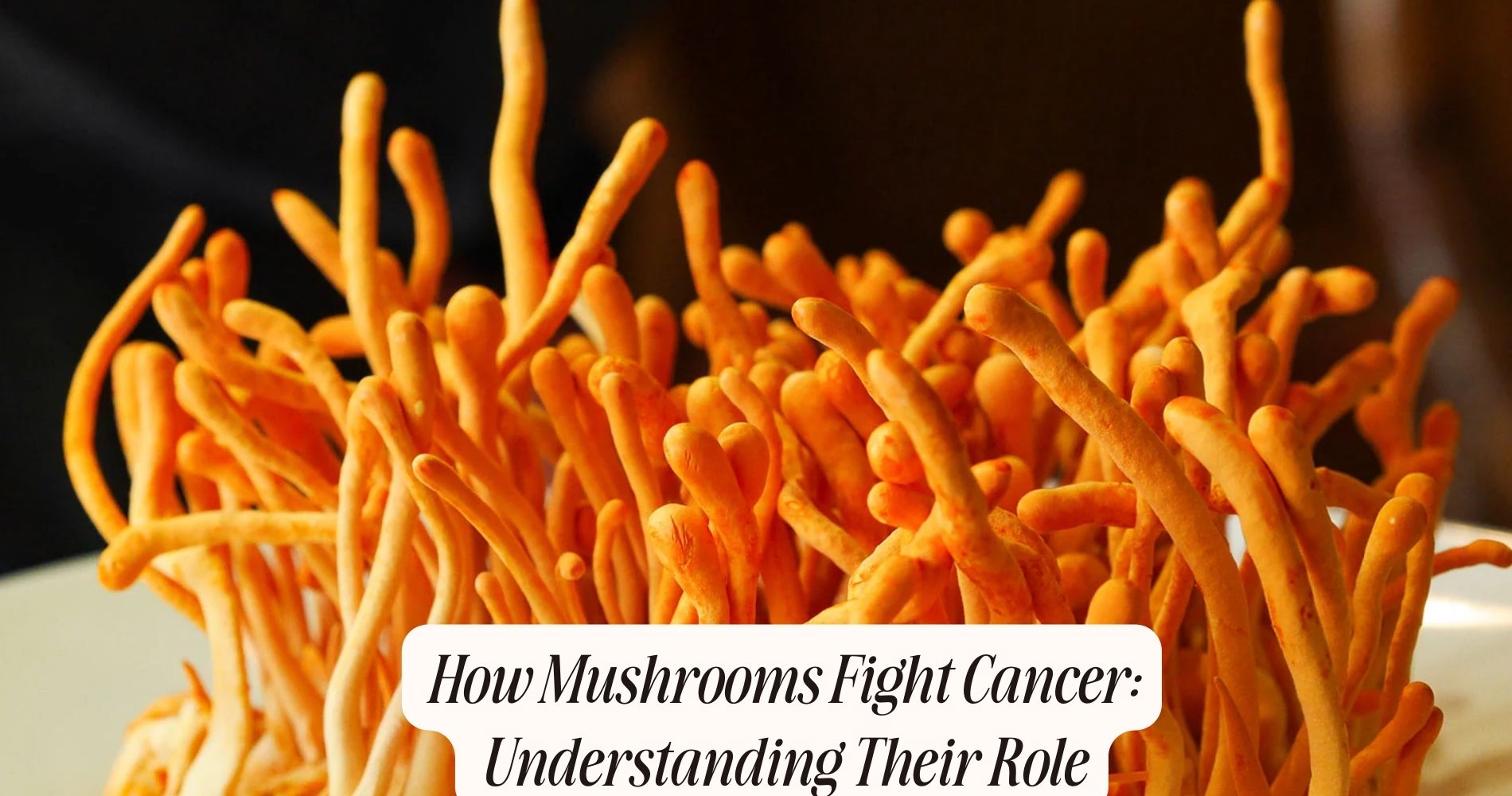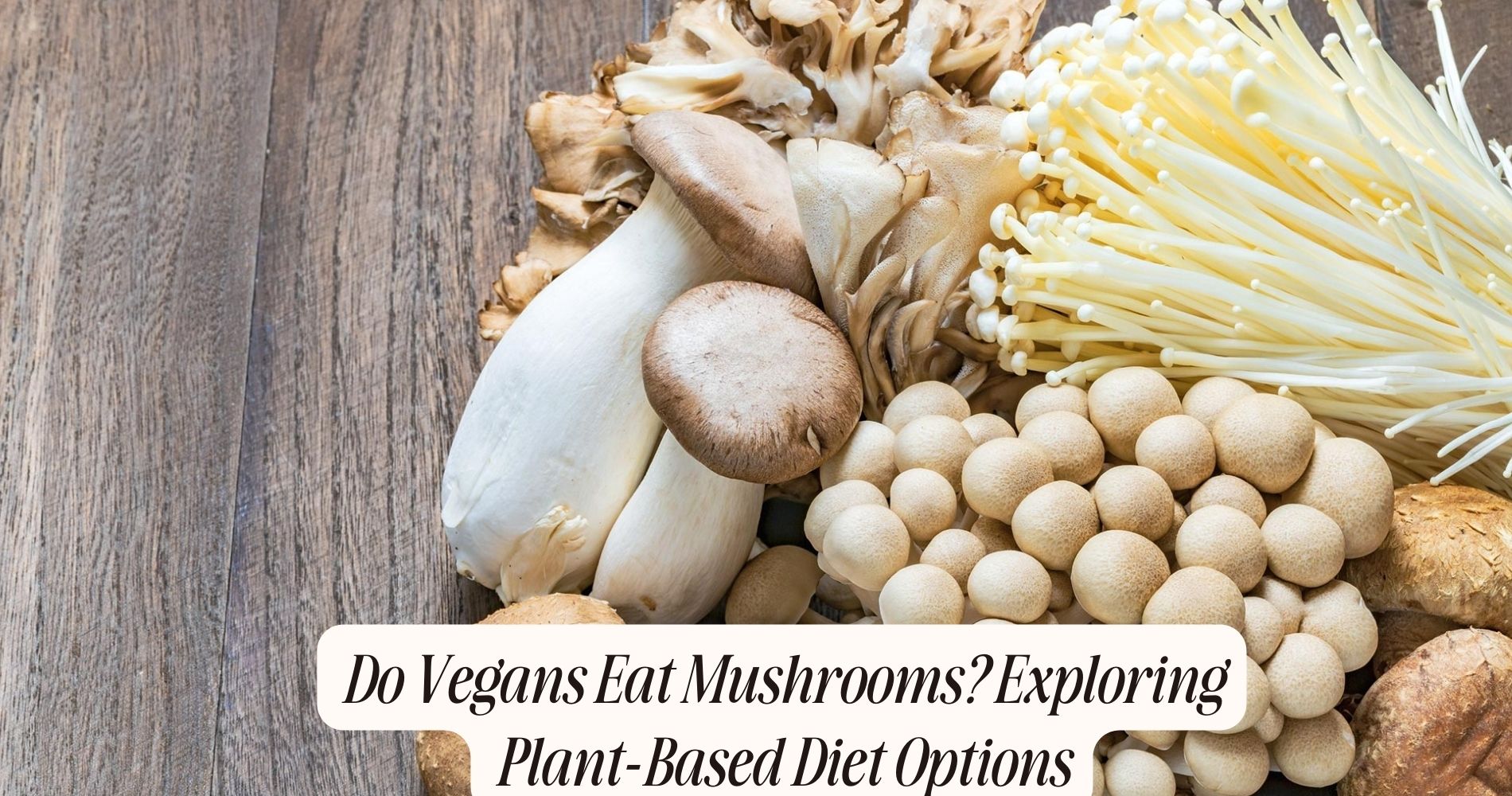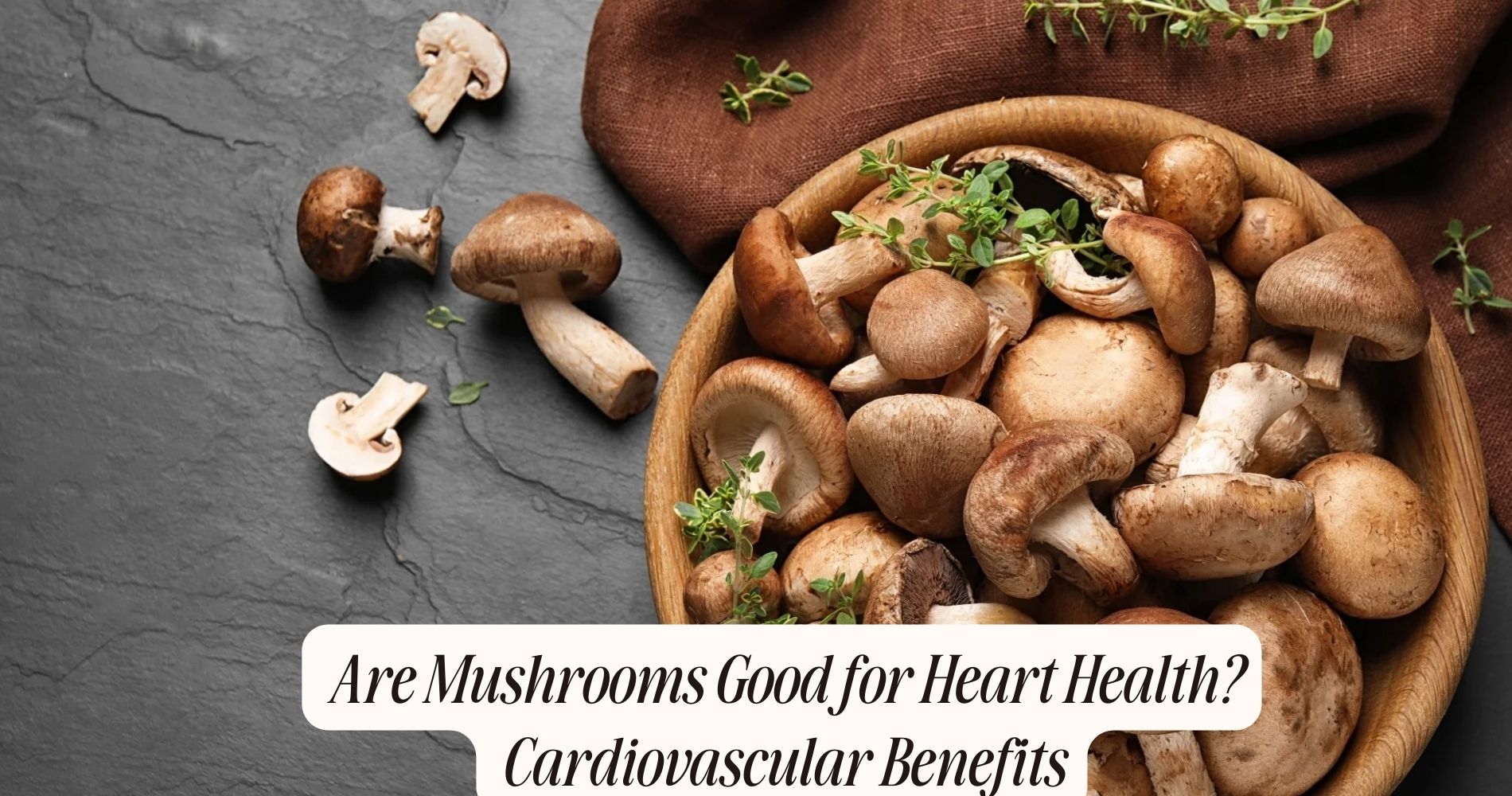
How Mushrooms Fight Cancer: Understanding Their Role
Mushrooms fight cancer through their rich array of bioactive compounds, such as polysaccharides and triterpenoids, known for their anticancer properties. Beta-glucans in mushrooms particularly help to modulate the immune response, enhancing the activity of macrophages and NK cells, crucial in combating cancer cells. These fungi also reduce inflammation by downregulating pro-inflammatory markers like TNF-α and IL-6.
Additionally, mushrooms can induce apoptosis in cancer cells and inhibit angiogenesis, effectively cutting off the blood supply to tumors. Moreover, mushroom extracts can enhance the efficacy of chemotherapy and mitigate its side effects. Clinical trials have highlighted the benefits of Reishi and Shiitake mushrooms, demonstrating their capacity to improve immune function and reduce tumor growth. Explore the powerful role that mushrooms fight cancer in this comprehensive analysis.
Key Bioactive Compounds
Key bioactive compounds in mushrooms, such as polysaccharides and triterpenoids, have shown promising anticancer properties in various clinical studies. Polysaccharides, particularly beta-glucans, offer significant polysaccharide benefits by modulating the immune response and inhibiting tumor growth. These complex carbohydrates enhance the body's natural defenses by activating macrophages and natural killer cells, which are essential in targeting and destroying cancer cells. Clinical trials have demonstrated that polysaccharides can also induce apoptosis in cancer cells, reducing their viability and proliferation.
Triterpenoids, another critical group of compounds, exhibit potent anticancer effects through various triterpene interactions. These interactions include the inhibition of angiogenesis, which is the formation of new blood vessels that tumors need for growth. Triterpenoids also interfere with cancer cell signaling pathways, effectively halting the progression of the disease. They've been shown to downregulate proteins involved in cell cycle regulation and promote apoptosis, further contributing to their anticancer properties.
The combination of polysaccharides and triterpenoids in mushrooms creates a synergistic effect, enhancing their overall efficacy in combating cancer. By leveraging these bioactive compounds, you can potentially harness the natural power of mushrooms in the fight against cancer.
Immune System Boosters
Mushrooms contain various compounds that greatly enhance the immune system, aiding in the body's natural defense mechanisms against cancer. Key among these compounds are beta-glucans, polysaccharides that modulate immune responses. Beta-glucans stimulate macrophages, dendritic cells, and natural killer (NK) cells, all of which play vital roles in identifying and destroying cancerous cells. By doing so, these compounds improve immune surveillance and potentially reduce tumor growth.
In clinical studies, mushrooms such as Reishi (Ganoderma lucidum) and Shiitake (Lentinula edodes) have demonstrated significant immune modulation properties. When used as dietary supplements, these mushrooms enhance the activity of T-cells and increase the production of cytokines, proteins that mediate and regulate immunity and inflammation. This immune modulation is essential for maintaining an effective defense against malignancies.

Moreover, the integration of these mushrooms into your diet or as dietary supplements can provide a holistic approach to traditional cancer treatments. Their ability to boost immune function without significant side effects makes them a valuable component in a complete cancer care regimen. Incorporating mushrooms can fortify the body's natural defenses, enhancing the efficacy of conventional therapies.
Anti-Inflammatory Effects
Reishi and Shiitake mushrooms demonstrate strong anti-inflammatory properties, showcasing a significant reduction in inflammation markers and mediators in the body. Chronic inflammation is a significant factor in cancer development, often leading to a cellular environment conducive to tumor growth. These mushrooms contain bioactive compounds like polysaccharides and triterpenoids, which specifically target and downregulate inflammatory markers such as TNF-α, IL-6, and COX-2.
In clinical studies, Reishi has shown efficacy in lowering CRP (C-reactive protein) levels, an established marker for chronic inflammation. Shiitake mushrooms also prove effective, with research indicating they can reduce the expression of nitric oxide and prostaglandins, both of which are key inflammatory mediators. By minimizing these markers, the mushrooms help in mitigating the prolonged inflammatory response that can lead to cancerous changes in tissues.

Furthermore, experimental models reveal that the consumption of these mushrooms decreases the infiltration of inflammatory cells into tissues, which further supports their role in reducing chronic inflammation.
You can see how integrating these mushrooms into your diet might contribute to managing inflammation, thereby potentially reducing cancer risk. The anti-inflammatory effects of Reishi and Shiitake mushrooms are a compelling aspect of their therapeutic potential.
Apoptosis Induction
Bioactive compounds in Reishi and Shiitake mushrooms initiate apoptosis in cancer cells by activating intrinsic and extrinsic apoptotic pathways. These pathways play a vital role in programmed cell death, which is essential for eliminating cancer cells.
The intrinsic pathway, also known as the mitochondrial pathway, is triggered by internal cell stress. Reishi and Shiitake compounds enhance cell signaling that increases mitochondrial membrane permeability, releasing cytochrome c. This release activates caspase proteins, leading to cell apoptosis.
In the extrinsic pathway, external signals bind to death receptors on the cancer cell surface. These bioactive compounds modulate protein regulation by binding to Fas and TRAIL receptors, initiating a cascade that activates caspase-8, which then activates downstream caspases, culminating in apoptosis. Reishi's triterpenoids and Shiitake's polysaccharides are particularly effective in this process.
Both pathways demonstrate that these mushrooms can alter cell signaling and protein regulation to promote cancer cell death. Clinical studies support their role in apoptosis induction, showcasing their potential as adjunct therapies in cancer treatment.
Angiogenesis Inhibition
You'll find that certain mushrooms are effective in inhibiting angiogenesis, which is critical for tumor growth. By blocking blood vessel formation, these compounds effectively starve tumor cells of the nutrients they need.
Studies have shown that compounds like polysaccharides and triterpenes in mushrooms play a significant role in this process.
Blocking Blood Vessel Growth
A variety of mushroom-derived compounds have demonstrated potential in inhibiting angiogenesis, the process by which new blood vessels form from pre-existing ones, essential for tumor growth. One of the primary mechanisms involves VEGF suppression. VEGF, or vascular endothelial growth factor, is a signal protein that endothelial cells use to communicate the need for new blood vessel formation. By inhibiting VEGF, these compounds effectively halt the proliferation of endothelial cells, consequently preventing the formation of new blood vessels that would otherwise supply nutrients to the tumor.
Compounds like polysaccharide K (PSK) and lentinan, derived from mushrooms such as Turkey Tail and Shiitake, have shown significant anti-angiogenic properties in preclinical studies. These substances can disrupt various signaling pathways involved in angiogenesis, leading to reduced microvessel density in tumors. The inhibition of endothelial cell migration and tube formation has been observed, which are critical steps in the angiogenic process.

Starving Tumor Cells
Inhibiting angiogenesis starves tumor cells by cutting off their essential supply of oxygen and nutrients, leading to impaired tumor growth and potential regression. When you prevent the formation of new blood vessels, tumor cells experience nutrient deprivation and metabolic interference, important factors that compromise their survival.
Research indicates that certain mushrooms, such as reishi and maitake, contain bioactive compounds that can effectively inhibit angiogenesis. These mushrooms produce polysaccharides and triterpenoids that disrupt the signaling pathways responsible for blood vessel formation. By interfering with these pathways, you fundamentally deprive the tumor cells of the necessary resources for their rapid growth and proliferation.
The result is a hostile environment for the tumor, marked by reduced nutrient availability and metabolic stress, which can lead to apoptosis or programmed cell death. Moreover, clinical studies have demonstrated that these bioactive compounds not only inhibit angiogenesis but also enhance the efficacy of conventional cancer treatments.
When you combine these natural inhibitors with chemotherapy or radiation, the overall therapeutic impact is greatly amplified. This dual approach maximizes nutrient deprivation and metabolic interference, offering a promising strategy for cancer management.
Enhancing Chemotherapy
Combining certain mushroom extracts with chemotherapy agents can enhance the treatment's efficacy by boosting the immune system and reducing tumor growth. When used in combination therapy, these extracts exhibit synergistic effects that amplify the anticancer properties of conventional drugs.
For instance, compounds in mushrooms like polysaccharides and triterpenoids can modulate immune responses, increasing the body's ability to target cancer cells more effectively.
Research demonstrates that mushrooms such as Reishi (Ganoderma lucidum) and Turkey Tail (Trametes versicolor) contain bioactive molecules that work in tandem with chemotherapy agents. This synergistic effect can lead to a significant reduction in tumor size and proliferation.
Notably, a study published in the Journal of Clinical Oncology reported that patients receiving a combination of chemotherapy and mushroom extracts experienced improved overall survival rates compared to those who received chemotherapy alone.
Reducing Side Effects
You can leverage mushrooms to mitigate chemotherapy side effects effectively.
Studies show that specific mushroom compounds alleviate symptoms, enhance immune responses, and minimize inflammation.
Incorporating these into treatment protocols may improve patient outcomes and quality of life.
Alleviating Chemotherapy Symptoms
Studies indicate that certain mushroom extracts can notably mitigate chemotherapy-induced side effects such as nausea, fatigue, and immune suppression. For instance, Reishi and Cordyceps mushrooms have been extensively studied for their potential in symptom management. When used as dietary supplements, these mushrooms may offer relief from the debilitating side effects of chemotherapy. They help reduce nausea by modulating gastrointestinal function and can alleviate fatigue by enhancing cellular energy production.

Clinical trials have demonstrated that Reishi mushrooms, rich in polysaccharides and triterpenoids, significantly improve patients' quality of life during chemotherapy. These compounds exhibit anti-inflammatory and antioxidant properties, which play an important role in reducing treatment-related fatigue and immune suppression.
Cordyceps, another potent mushroom, has been found to boost adenosine triphosphate (ATP) levels, thereby improving energy and reducing chemotherapy-induced lethargy.
Incorporating these mushroom extracts into your dietary regimen under medical supervision can optimize symptom management. However, it's crucial to consult with your healthcare provider before starting any new supplement. The promising results from ongoing research underscore the potential of these natural adjuncts in alleviating chemotherapy symptoms, providing a complementary approach to conventional cancer treatments.
Enhancing Immune Response
Mushroom extracts, such as those from Turkey Tail and Shiitake mushrooms, have shown promising potential in enhancing the immune response during cancer treatments. These extracts play an important role in bolstering immune surveillance, which is essential for identifying and targeting cancer cells. Research indicates that polysaccharides, particularly beta-glucans, found in these mushrooms can stimulate T cell activation, a key component of the adaptive immune system.
When you incorporate mushroom extracts into a cancer treatment regimen, you're fundamentally providing your immune system with additional tools to fight the disease. T cells, once activated, can more effectively identify and destroy cancer cells. This enhanced immune activity not only improves the efficacy of cancer treatments but also helps reduce the side effects commonly associated with conventional therapies, such as chemotherapy and radiation.
Clinical studies have demonstrated that patients receiving mushroom extracts alongside traditional treatments show improved immune markers and better overall outcomes. By enhancing immune surveillance and facilitating T cell activation, mushroom extracts offer a complementary approach to cancer therapy. This dual action can lead to a more robust immune response, ultimately contributing to a higher quality of life during treatment.
Minimizing Inflammation Impact
Incorporating mushroom extracts into cancer treatments can greatly alleviate inflammation and reduce the side effects associated with conventional therapies. Research indicates that compounds like polysaccharides and triterpenoids found in mushrooms possess potent anti-inflammatory properties. These compounds modulate inflammatory pathways by inhibiting cytokine production and reducing oxidative stress, which are vital in minimizing the adverse effects of chemotherapy and radiation.
Your dietary choices play a significant role in this process. Including mushrooms such as Reishi, Shiitake, and Maitake in your diet can enhance your body's natural anti-inflammatory responses. These mushrooms contain bioactive compounds that synergize with conventional treatments, helping to mitigate inflammation and promote overall health.

Additionally, lifestyle modifications can further optimize the benefits of mushroom extracts. Adopting a balanced diet rich in anti-inflammatory foods, regular physical activity, and stress management techniques like meditation can amplify the anti-inflammatory effects of mushroom supplements.
Clinical studies have shown that these combined approaches not only improve treatment outcomes but also enhance quality of life for cancer patients by reducing fatigue, pain, and other treatment-related side effects.
Specific Mushroom Species
Among the various species studied, Reishi mushrooms (Ganoderma lucidum) have demonstrated significant anti-cancer properties through modulation of the immune system and inhibition of tumor growth. Reishi benefits include enhancing the activity of natural killer cells and T-lymphocytes, which are key components of your immune defense against malignant cells. Additionally, Reishi mushrooms contain triterpenoids that exhibit cytotoxic effects on cancer cells, effectively inducing apoptosis and halting proliferation.
Shiitake mushrooms (Lentinula edodes) also offer notable anti-cancer advantages. Shiitake properties include the presence of lentinan, a β-glucan that enhances the immune response. Lentinan has been shown to stimulate the production of interleukin-1 and other cytokines, which play an important role in anti-tumor activity. Furthermore, shiitake mushrooms have been found to possess anti-angiogenic properties, preventing the formation of new blood vessels that supply nutrients to tumors, thereby inhibiting their growth.
Frequently Asked Questions
Are There Any Risks or Side Effects of Consuming Mushrooms for Cancer Treatment?
You should be aware that while mushrooms can modulate the immune system, they also carry risks. Fungal toxicity may occur, leading to side effects. Always consult healthcare professionals before incorporating them into cancer treatment.
How Do Mushrooms Interact With Other Medications or Treatments?
You should know mushrooms can exhibit synergistic effects with other treatments, enhancing therapeutic outcomes. However, they can also have pharmacokinetic interactions, potentially altering drug metabolism and efficacy. Always consult your healthcare provider before combining treatments.
Can Mushrooms Help Prevent Cancer in Healthy Individuals?
Yes, you can benefit from mushrooms' antioxidant benefits and immune-boosting properties to potentially prevent cancer. Clinical studies suggest these effects may reduce oxidative stress and enhance immune surveillance, lowering cancer risk in healthy individuals.
What Is the Recommended Dosage for Therapeutic Effects of Mushrooms?
For therapeutic compounds in mushrooms, you should consult clinical guidelines. Typically, dosage frequency is 1-3 grams daily, but always confirm with a healthcare provider to guarantee safety and efficacy based on your specific condition.
Are There Any Dietary Restrictions to Consider When Integrating Mushrooms for Cancer Support?
When integrating mushrooms for cancer support, consider allergy concerns by consulting an allergist. Cooking tips include thoroughly cooking mushrooms to enhance their benefits and reduce potential toxins. Always follow evidence-based guidelines for best results.
Conclusion
In understanding how mushrooms fight cancer, you've seen that key bioactive compounds play essential roles. These compounds boost the immune system, exhibit anti-inflammatory effects, and induce apoptosis in cancer cells. They also inhibit angiogenesis, reducing tumor growth and side effects.
Specific mushroom species have shown promise in clinical trials. By integrating mushrooms into your daily routine, you're leveraging a scientific approach to potentially enhance cancer treatment and support overall health.




